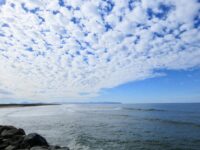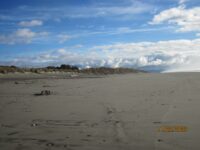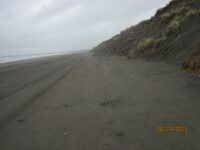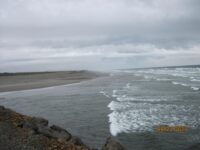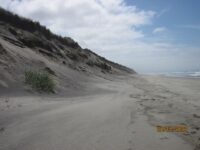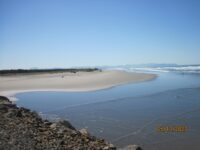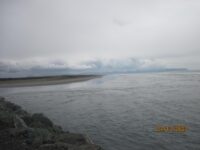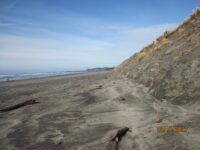Mile 340 Report
South Jetty Columbia River, Fort Stevens SP
February 14, 2023
Steep dune faces typical for winter.
Report Details
Steep dune faces typical for winter.
Conditions
Temperature: 55 F. Cloud Cover: Cloudy. Wind Velocity: Calm/Light. Wind Direction: W. Tide Level: -1.2 feet.
Human Activities
Number of people: 3. Number of dogs: 1. Walking or running: 3.
Vehicles
Notable Wildlife
None
Beached Birds
Total dead birds: 2.
Driftline Content
Small rocks, Seaweeds and seagrass, Shells, Animal casings (e.g., crab, shrimp molt), Styrofoam.
New Development
Bluff development. Steep dune faces.
Natural Changes
Erosion of vegetated foredune, Visible retreat of solid bluff. Steep dunes faces typical for winter.
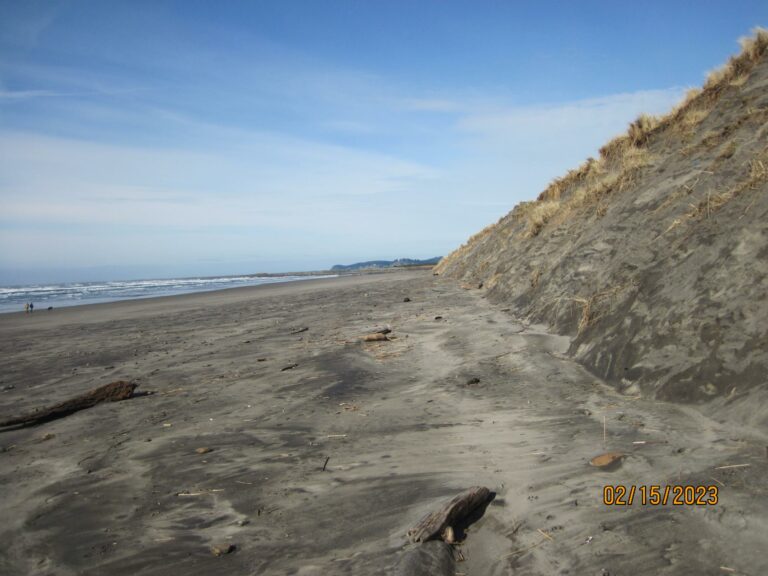
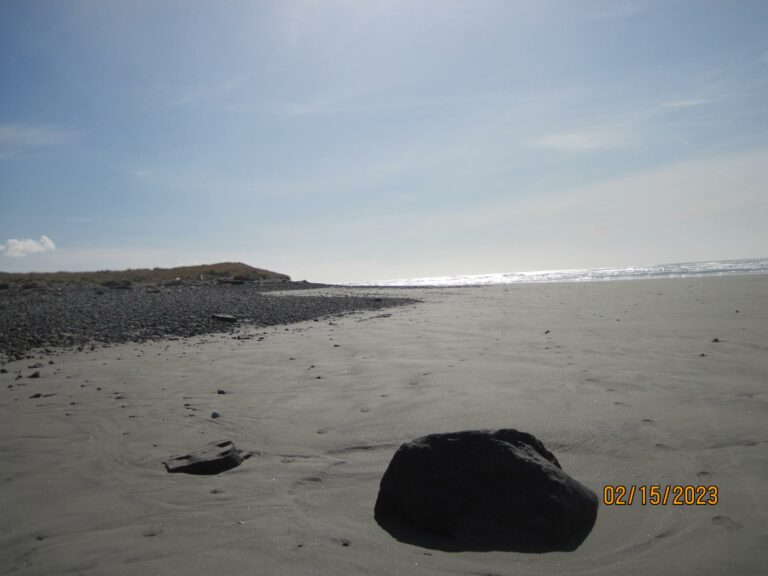
Report Images
All Mile 340 Reports
Mile 340
South Jetty Columbia River, Fort Stevens SP
This mile report was conducted to document notable wildlife offshore observed from the South Jetty/Parking Lot C area looking down onto mile 340 from the jetty.
sultanym
Mile 340
South Jetty Columbia River, Fort Stevens SP
Nothing important to note.
edjoyce
Mile 340
South Jetty Columbia River, Fort Stevens SP
Small amounts of marine debris were reported on NOAA's Marine Debris survey report.
edjoyce
Mile 340
South Jetty Columbia River, Fort Stevens SP
Dunes are taking on less steep slopes - see photos.
edjoyce
Mile 340
South Jetty Columbia River, Fort Stevens SP
Dead sea lion, which had been shot with a shot gun, and direct evidence of continued eastward migration of eroding dunes
edjoyce
Mile 340
South Jetty Columbia River, Fort Stevens SP
Steep dune faces typical for winter.
edjoyce

